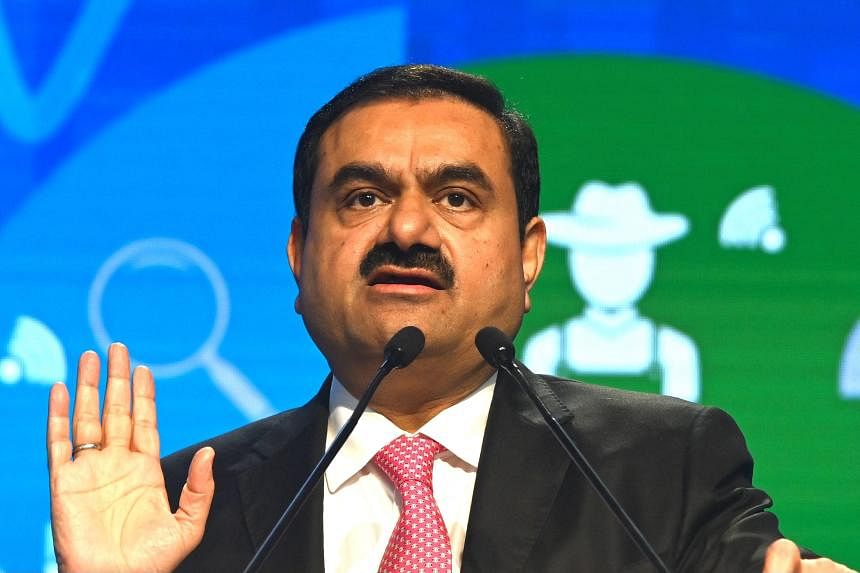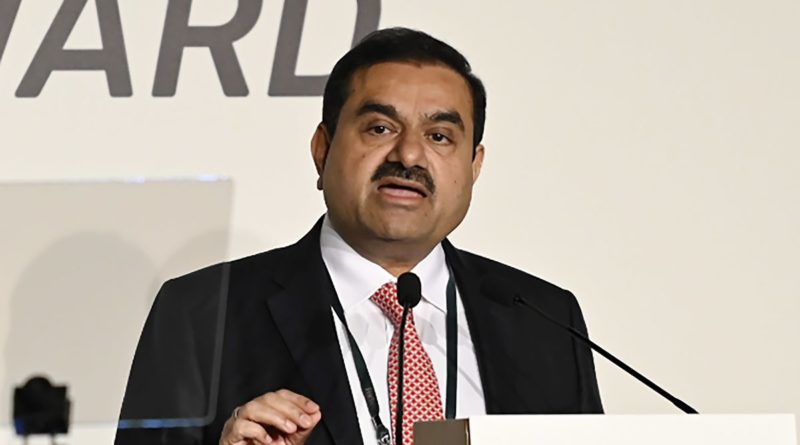Explainer | Adani crisis: Who is Gautam Adani and what are his Singapore connections?
SINGAPORE – Asia’s richest man Gautam Adani hogged the headlines last week after a US short seller on Jan 24 accused the Adani Group, the conglomerate he controls, of “brazen stock manipulation and accounting fraud” over the course of decades, erasing more than US$50 billion (S$65.6 billion) in market value from Mr Adani’s business empire.
The allegations were made by Hindenburg Research, a small New York-based forensics research firm, which took a short position in Adani Group through US-traded bonds and non-Indian-traded derivative instruments, it said.
The Adani Group has dismissed the report as brazen, malicious and baseless, and said it was exploring legal action. It added that the Hindenburg report was timed to damage an upcoming US$2.5 billion share sale by its flagship, Adani Enterprises. The company also denied reports it was mulling over delaying or cutting the price of the share sale.
The market rout has personally cost Mr Adani in excess of US$20 billion, or about one-fifth of his total fortune of around US$100 billion, according to the Bloomberg Billionaires Index.

Mr Gautam Adani is chairman of Adani Group, India’s largest conglomerate with businesses spanning ports, airports, manufacturing and energy. PHOTO: AFP
Who is Gautam Adani and what does his Adani Group do?
Mr Adani, 60, became Asia’s richest man last year.
He was born to a small textile merchant family in 1962 in the western industrial state of Gujarat. He dropped out of university and began his career sorting diamonds for a firm in the financial hub of Mumbai.
The tycoon is seen as closer to Prime Minister Narendra Modi, who also hails from Gujarat state, than any other Indian billionaire. Mr Adani’s corporate strategy has run in parallel with Mr Modi’s efforts to develop India’s US$3.2 trillion economy.
Mr Adani is chairman of Adani Group, India’s largest conglomerate with businesses spanning ports, airports, manufacturing and energy.
What is short selling?
Short selling is an investment or trading strategy that speculates on the decline in a stock’s price.
A short occurs when an investor borrows shares of a stock or company that he believes will decrease in value over a period of time. The investor then sells these borrowed shares to buyers willing to pay the market price.
The price of the stock must decline before the short investor returns the borrowed shares, enabling him to make a profit from the difference in the market price and the lower value of the stock.
While short sellers place bets on the decline of a company’s stock, some release research about a company’s weaknesses or alleged wrongdoing, hoping to persuade the market to sell shares.
Several Singapore companies have fallen victim to this method of short selling. They include commodity trader Olam International and the now-defunct Noble Group.
Hindenburg Research claims its report and short position on Adani Group comes after two years of investigations.
What is Hindenburg Research and why is it betting against Adani Group?
Founded in 2017 by short seller Nathan Anderson, Hindenburg Research calls itself a forensic financial research firm that analyses equity, credit and derivatives.
On its website, Hindenburg says it looks for “man-made disasters” such as accounting irregularities, mismanagement and undisclosed related-party transactions.
Hindenburg invests its own capital and is best known for winning an undisclosed amount after betting against US-listed Nikola Corp in September 2020, saying the electric truck maker deceived investors about its technological developments. Mr Anderson challenged a video Nikola produced showing its electric truck cruising at high speed, when in fact the vehicle was rolled down a hill.
A US jury convicted Nikola founder Trevor Milton last year of fraud over allegations that he lied to investors. Nikola is now worth just US$1.34 billion compared with its peak of US$34 billion when it first listed in June 2020, Reuters reported.
Now, Hindenburg is accusing Adani Group of artificially boosting the share prices of its seven listed firms over several decades. It also argued that the companies are collectively overvalued by more than 80 per cent on the Indian stock exchange.
Hindenburg’s report details a web of Adani family-controlled offshore shell entities in tax haven jurisdictions including Singapore that it claims were used to facilitate corruption, stock price manipulation and taxpayer theft while siphoning money from the group’s listed companies.
What are Adani’s Singapore connections?
The Adani Group has had a presence in Singapore for over 20 years, according to Adani Singapore country head Jeyakumar Janakaraj in May 2021, when the company opened a new office in Springleaf Tower. Adani Singapore is the headquarters for the Adani Group’s operations in the South-east Asia region.
Last October, the media reported that Mr Adani was in early discussions with investors that included Singapore investment firm Temasek and sovereign wealth fund GIC to raise at least US$10 billion to fund its expansion into clean energy, ports and cement businesses.
This came after Mr Adani in a keynote speech at a September 2022 conference here revealed that the group plans to invest a total of US$100 billion over the next decade, and has committed US$70 billion towards developing hydrogen as a source of cheap renewable energy.
When contacted by The Straits Times, a spokesman for Temasek said it does not comment on market speculation. The spokesman confirmed that Temasek “remains invested in Adani Ports, as per their latest public shareholding disclosures”.
Temasek, through its subsidiary Camas Investments, owns a small stake of just over 1.2 per cent in Adani Ports and Special Economic Zone, according to the company’s shareholder information. The stake was acquired in 2018 for around $147 million.
GIC did not respond to ST queries.
Adani Group also runs an edible oil and food business in India called Adani Wilmar via a joint venture with Singapore-listed Wilmar International.
- With additional information from Bloomberg, Reuters
.



 Memento Maxima Digital Marketing
Memento Maxima Digital Marketing Ads by: Memento Maxima Digital Marketing
Ads by: Memento Maxima Digital Marketing






